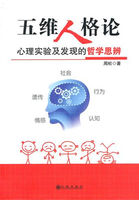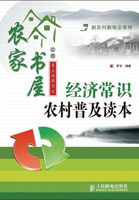The emancipation of the serfs was only one among a number of projected reforms which en-gaged men's minds. The national conscience awoke and echoed the cry of the exiled patriot Herzen, "Now or never!" Educational enter-prise was aroused, and some forty schools for peasant children were started on the model of that opened by Tolstoy at Yasnaya Polyana (1861). The literary world throbbed with new life, and a brilliant company of young writers came to the surface, counting among them names of European celebrity, such as Dostoevsky, Ne-krassov, and Saltykov. Unhappily the reign of Progress was short. The bureaucratic circle hem-ming in the Czar took alarm, and made haste to secure their ascendancy by fresh measures of op-pression. Many schools were closed, including that of Tolstoy, and the nascent liberty of the Press was stifled by the most rigid censor-ship.
In this lamentable manner the history of Rus-sia's internal misrule and disorder has continued to repeat itself for the last sixty years, revolving in the same vicious circle of fierce repression and persecution and utter disregard of the rights of individuals, followed by fierce reprisals on the part of the persecuted; the voice of protest no sooner raised than silenced in a prison cell or among Siberian snow-fields, yet rising again and again with inextinguishable reiteration; appeals for political freedom, for constitutional govern-ment, for better systems and wider dissemination of education, for liberty of the Press, and for an enlightened treatment of the masses, callously re-ceived and rejected. The answer with which these appeals have been met by the rulers of Rus-sia is only too well known to the civilised world, but the obduracy of Pharoah has called forth the plagues of Egypt. Despite the unrivalled agrarian fertility of Russia, famines recur with dire frequency, with disease and riot in their train, while the ignominious termination of the Russo-Japanese war showed that even the magnificent morale of the Russian soldier had been under-mined and was tainted by the rottenness of the authorities set over him. What in such circum-stances as these can a handful of philanthropists achieve, and what avails alms-giving or the scat-tering of largesse to a people on the point of spir-itual dissolution?
In these conditions Tolstoy's abhorrence of money, and his assertion of its futility as a pana-cea for human suffering, appears not merely com-prehensible but inevitable, and his renunciation of personal property the strictly logical outcome of his conclusions. The partition of his estates between his wife and children, shortly before the outbreak of the great famine in 1892, served to relieve his mind partially; and the writings of Henry George, with which he became acquainted at this critical time, were an additional incentive to concentrate his thoughts on the land question.
He began by reading the American propagandist's "Social Problems," which arrested his attention by its main principles and by the clearness and novelty of his arguments. Deeply impressed by the study of this book, no sooner had he finished it than he possessed himself of its forerunner, "Progress and Poverty," in which the essence of George's revolutionary doctrines is worked out.
The plan of land nationalisation there explained provided Tolstoy with well thought-out and log-ical reasons for a policy that was already more than sympathetic to him. Here at last was a means of ensuring economic equality for all, from the largest landowner to the humblest peasant--a practical suggestion how to reduce the inequali-ties between rich and poor.
Henry George's ideas and methods are easy of comprehension. The land was made by God for every human creature that was born into the world, and therefore to confine the ownership of land to the few is wrong. If a man wants a piece of land, he ought to pay the rest of the community for the enjoyment of it. This payment or rent should be the only tax paid into the Treasury of the State. Taxation on men's own property (the produce of their own labour) should be done away with, and a rent graduated according to the site-value of the land should be substituted. Monop-olies would cease without violently and unjustly disturbing society with confiscation and redistribu-tion. No one would keep land idle if he were taxed according to its value to the community, and not according to the use to which he individ-ually wished to put it. A man would then read-ily obtain possession of land, and could turn it to account and develop it without being taxed on his own industry. All human beings would thus be-come free in their lives and in their labour.
They would no longer be forced to toil at demor-alising work for low wages; they would be inde-pendent producers instead of earning a living by providing luxuries for the rich, who had enslaved them by monopolising the land. The single tax thus created would ultimately overthrow the pres-ent "civilisation" which is chiefly built up on wage-slavery.
Tolstoy gave his whole-hearted adhesion to this doctrine, predicting a day of enlightenment when men would no longer tolerate a form of slavery which he considered as revolting as that which had so recently been abolished. Some long conversations with Henry George, while he was on a visit to Yasnaya Polyana, gave additional strength to Tolstoy's conviction that in these theories lay the elements essential to the trans-formation and rejuvenation of human nature, go-ing far towards the levelling of social inequalities.
But to inoculate the landed proprietors of Russia as a class with those theories was a task which even his genius could not hope to accomplish.















